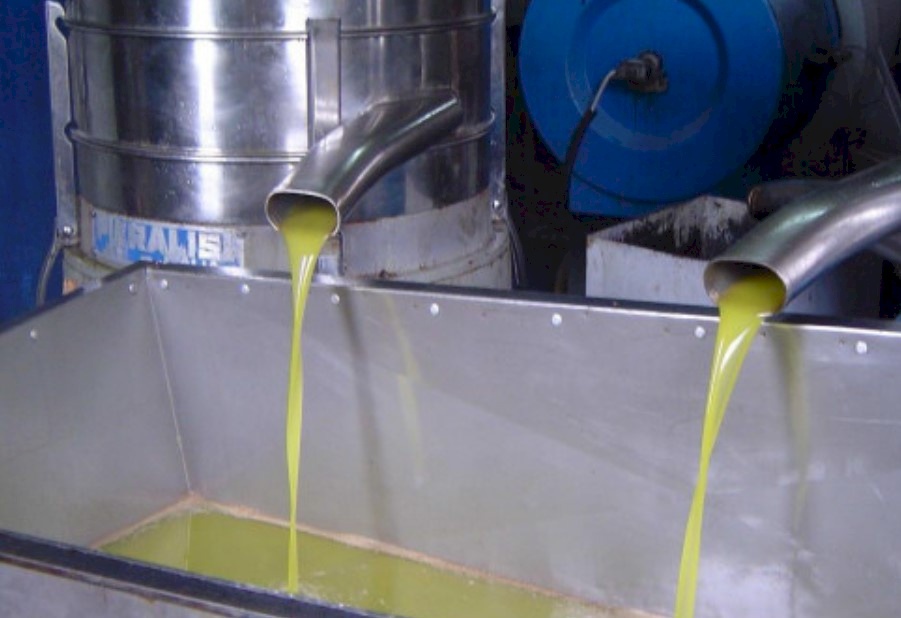
Ministry of Agriculture: Olive Oil Fraud Rises to 4% with 7 Cases Submitted to Court
SadaNews - The Ministry of Agriculture stated that there has been an increase in the rate of olive oil fraud from 1% to 4% out of approximately 1,900 samples examined.
The ministry clarified in a statement issued today, Monday, regarding the measures to inspect and control cases of olive oil fraud, that the relevant authorities have referred 7 cases of olive oil fraud to the Public Prosecution for legal action.
It confirmed that inspection and sample testing rounds are ongoing, urging citizens to report any suspicions and to go for sample testing at the Ministry of Agriculture laboratories.
It emphasized that it will not tolerate any cases of tampering with this strategic national product, reaffirming its commitment to protecting the national product and preserving the reputation of Palestinian olive oil in local and international markets, ensuring safe, sound, and high-quality products reach consumers.
The ministry also reiterated that Palestine is among the countries with the lowest recorded instances of tampering or fraud in olive oil, based on officially approved data and national laboratories.
It indicated that in previous seasons, the rate of fraud did not exceed 1% out of over 6,500 samples tested in the ministry's laboratories. In the current season, as of November 13, 2025, 1,900 samples have been tested since the beginning of the season, and the rate of non-compliant samples was found to be only 4%.
The ministry believes that this relative increase is due to several exceptional factors and emergency circumstances, primarily: the unprecedented sharp decline in oil production this year, estimated at about 8,000 tons only, in addition to the increased local demand for oil and economic pressures, and the occupation's control over the contact zones, which has hindered inspection rounds and increased attempts at fraud and smuggling.
It explained that the ministry's laboratories rely on an accurate scientific testing system that complies with the Palestinian specification No. 188/2025 and the standards set by the International Olive Council, which includes: receiving sealed and official samples from agricultural directorates or from farmers, traders, and exporters, and conducting three internationally recognized basic tests: acidity, peroxide value, and testing for admixtures (fraud) using nitric acid, in addition to auditing results and officially approving them by the laboratory director, and promptly notifying the monitoring authorities when any results indicate fraud or tampering.
In its explanatory statement, the ministry confirmed that this officially approved system is the foundation for issuing quality certificates for local marketing and export, and has effectively contributed over the years to enhancing the prestigious status of Palestinian oil in international markets and protecting consumer trust.
It noted that from October 10, 2025, to November 13, 2025, 1,900 samples were tested, 96% of which were found to comply with the specifications, while only 78 samples (4%) were found to be fraudulent, a rate that remains low compared to the global average, despite the difficult economic and security conditions the country is facing.
In this context, it emphasized the necessity of correcting incorrect figures circulating about the quantities of adulterated or smuggled oil, as there have been claims of "32,000 tons" of confiscated oil, while the correct figure according to customs control is only 32 tons, which is a limited quantity compared to the total domestic production.
In light of the follow-ups by the customs control and consumer protection teams in the Ministry of National Economy, 7 cases of fraud have been referred to the Public Prosecution for legal action against those involved in tampering with this national commodity.
It stressed that the sampling process, laboratory tests, and field rounds are ongoing around the clock to ensure the minimization of any attempts at fraud or forgery.
The ministry renewed its invitation to citizens to enhance their monitoring role by reporting any suspicion of fraud and going directly to the ministry's laboratories to have their samples tested, affirming that it will not hesitate to take the strongest legal measures against anyone who misuses this national product, which is an integral part of Palestinian heritage and economy.

The Problem of Shekel Overcrowding Worsens.. Fuel Station Owners Threatened with Closure o...

The Palestinian Economy at a Crossroads: 4 Files Awaiting Resolution

Significant Drop in the Number of Residential Apartments Sold in Israel During 2025

Israeli Banks Cut Deposit Interest Rates Offered to Their Customers

Exchange Rates Against the Shekel on Wednesday (February 11)

Economy: No leniency in holding accountable those who endanger citizens' health as Ramadan...

The Ministry of Finance Discusses the Reality and Prospects of Developing the Monitoring a...
